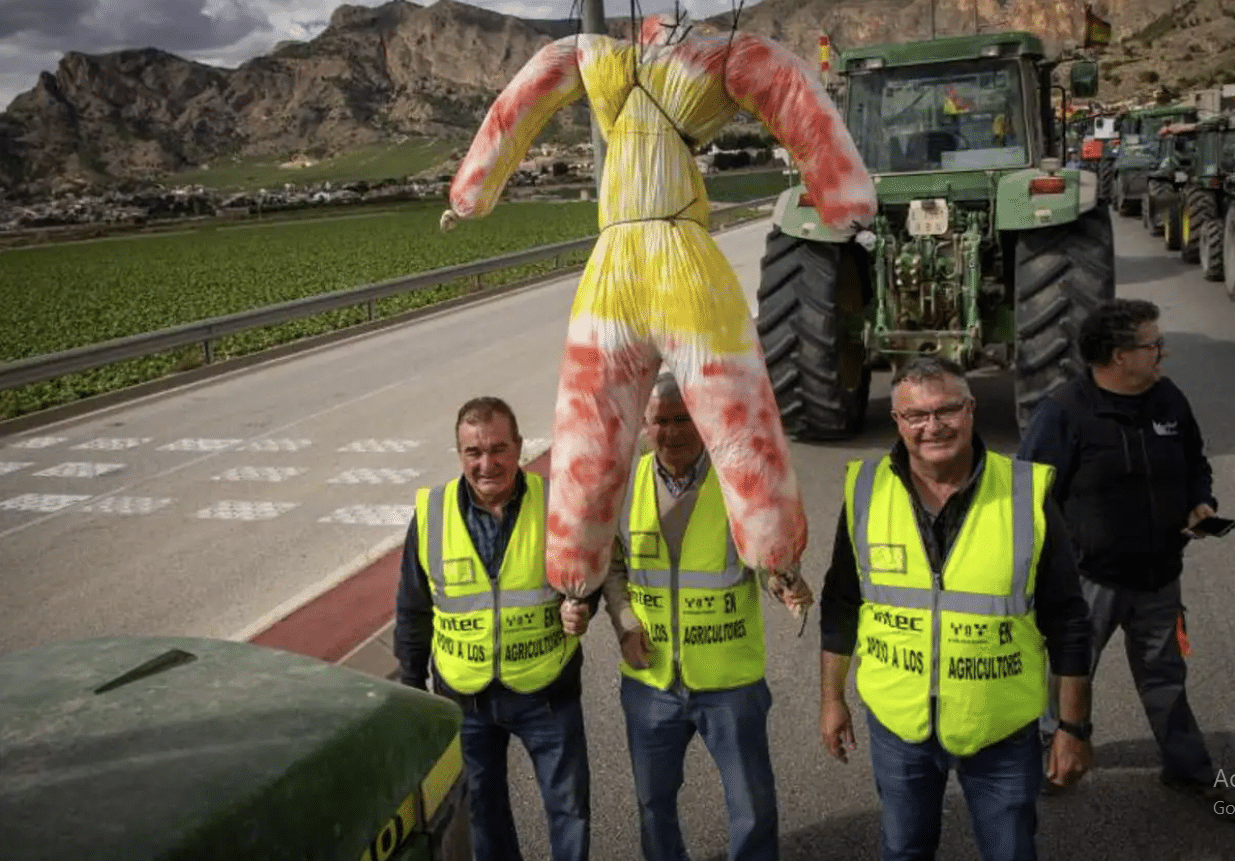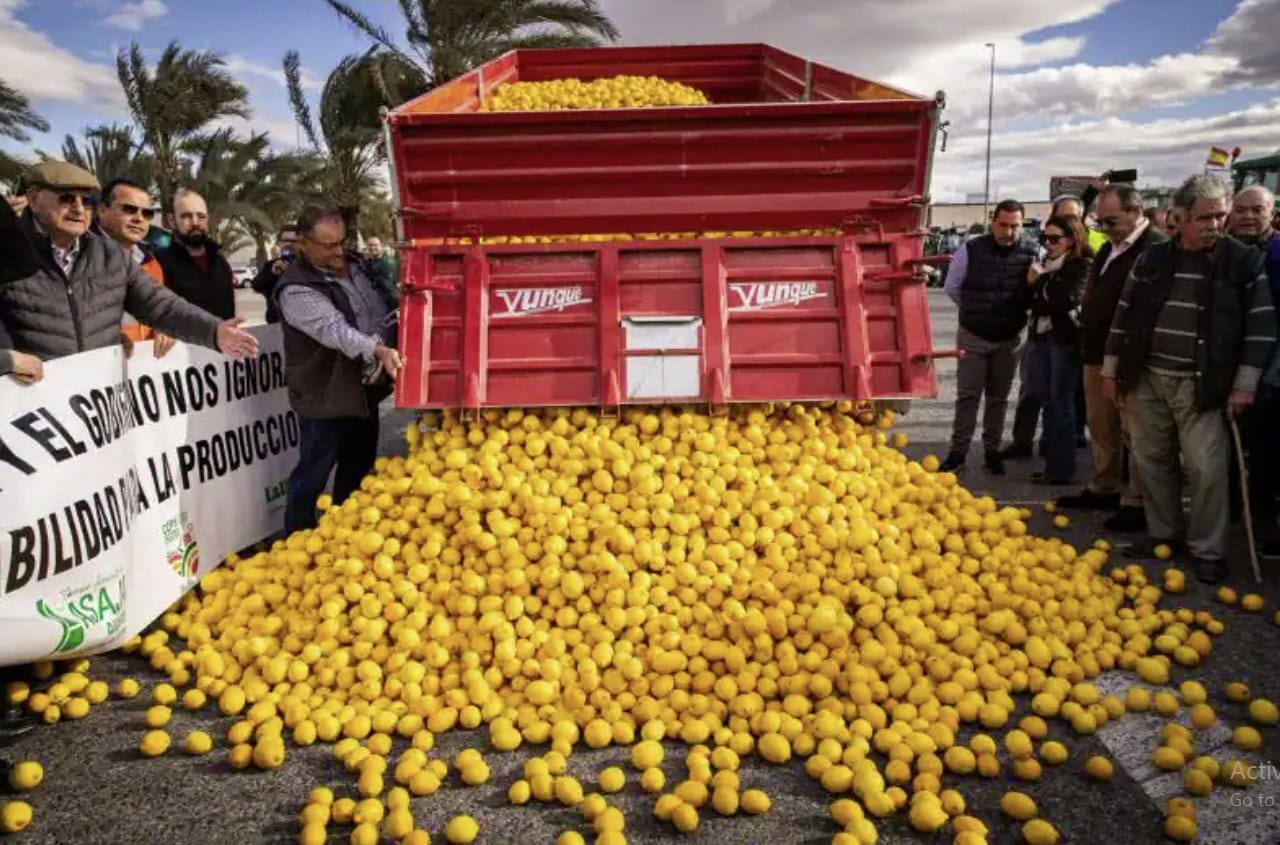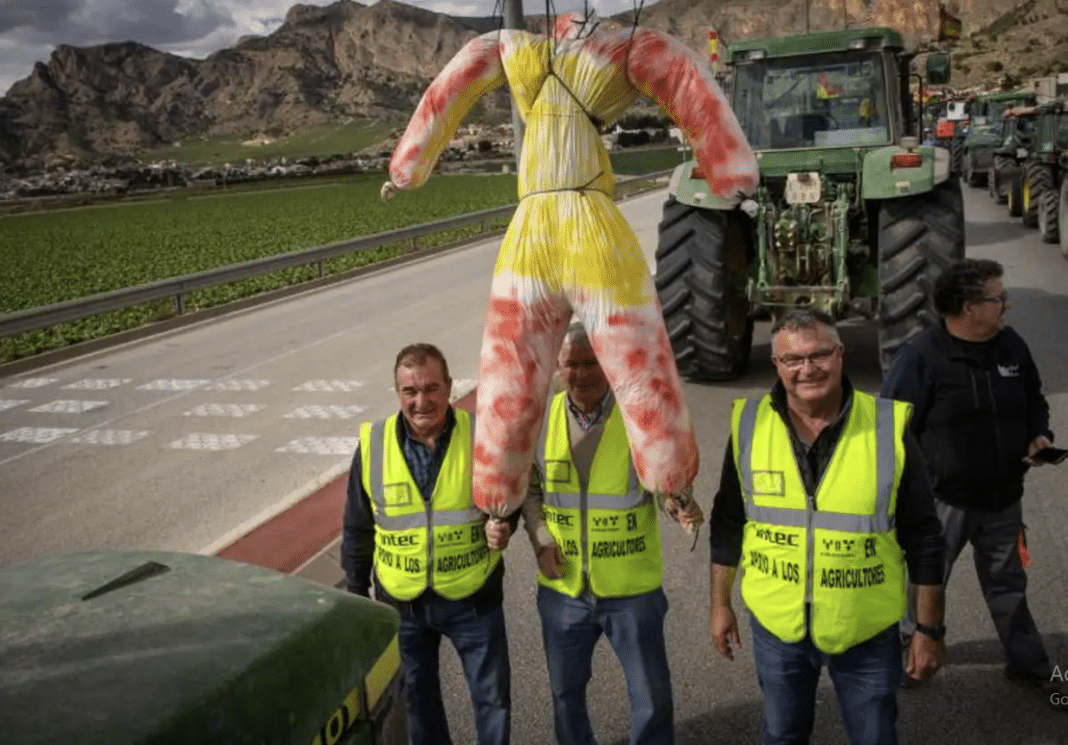The day of mobilization across the Alicante countryside, organised by the main agricultural organizations (Asaja Alicante, Coag, La Unió), has led to a new clash between administrations, in this case the Generalitat Valenciana and the Government of Spain.
It was all because the Government Subdelegation moved the protest from the National to secondary roads, a decision that the Superior Court of Justice of the Valencian Community (TSJ) endorsed, but whose ruling was passed to the organisers only on Thursday evening, just a few hours before the protests began.
However, this did not prevent the success of the protest with more than 400 agricultural vehicles deployed to three key points in the province of Alicante: the La Granadina industrial estate, in San Isidro; in Villena and in Planes. The association Asaja said that the protest was “a complete success”, far above their expectations.
The day of protests were meant to cause serious disruption of the main communication routes through Alicante (mainly the A-7 and the A-31) and that was not achieved, following extensive deployment of the Civil Guard in San Isidro and Villena, unlike in other areas of Spain where many major routes were closed.
Locally the deployment of police agents to enforce the TSJ order was not without moments of tension with farmers gathered in many locations surprised and outraged by the high number of troops.
There was also frustration with some protesters venting their anger at the organisers who they said had only attended the protests so they could have their photo taken.
“We had the intention of holding an authorised, organised and peaceful demonstration on the highway. Farmers are being treated as criminals, when four years ago society valued us as heroes,” said Alberto Travé, head of La Unió in the province, in reference to the pandemic.







